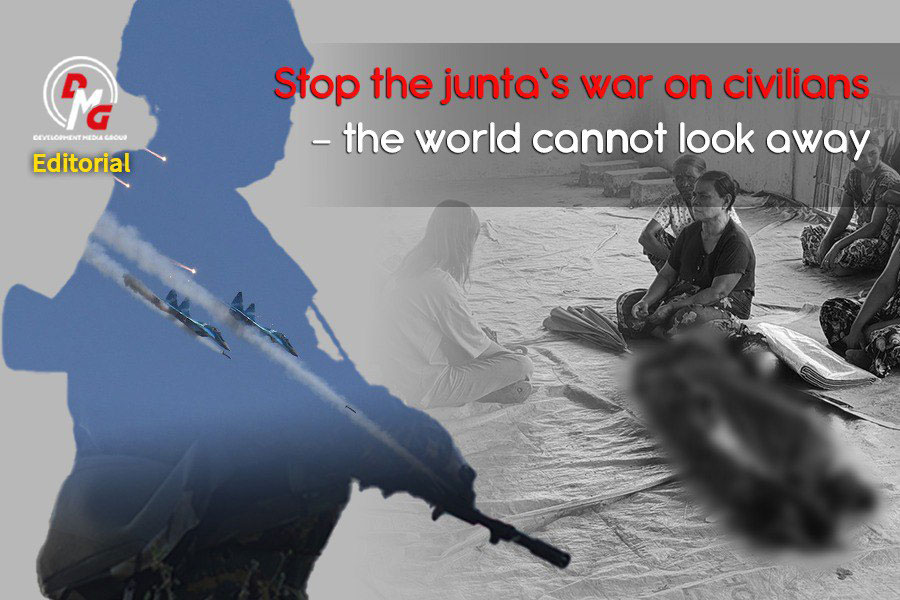- Junta claims over 24 million ballots cast in 2025 poll, cites strong youth turnout
- ULA expands HIV prevention, healthcare services for sex workers in AA-held areas
- Over 600 Mro villagers displaced in Maungdaw amid threats from ARSA, RSO
- Clashes continue in Sittwe as junta reinforces naval, armored deployment
- Arakan Army signals willingness to forge strategic partnership with Bangladesh’s new government
Editorial: Stop the junta's war on civilians - the world cannot look away
It is not enough to issue statements of "concern." It is not enough to merely condemn. The world must act - through sanctions that target the junta's war machinery, through international legal mechanisms to prosecute its generals, and through urgent humanitarian interventions to protect those who remain trapped in this escalating conflict.
13 Sep 2025

In less than three weeks, two of the most devastating airstrikes in recent memory have torn through Arakan State - first in Daing Kyi Ward, Mrauk-U on August 25, and then in Thayet Ta Pin village, Kyauktaw Township on September 12.Together, these deliberate acts of terror have killed at least 36 civilians, most of them schoolchildren, injured dozens more, destroyed homes and schools, and left hundreds homeless.
The facts are chilling. In Mrauk-U, two 500-pound bombs flattened 42 homes and killed 14 civilians, including a five-year-old child. In Kyauktaw, a school dormitory was reduced to rubble as students slept, killing 22 - among them 19 teenagers who had dreams of studying, teaching, and building better futures. These were not accidents. They were targeted bombings of civilian areas, in violation of every principle of international humanitarian law.
UNICEF, in an unusually sharp statement, condemned the Kyauktaw attack, warning that children are "losing their lives in the very spaces meant to protect them - their homes, schools, and neighborhoods." The UN's words echo what every Arakanese family knows: the junta is waging war not on soldiers, but on children.
This is more than tragedy. It is a crime. International law is clear: deliberate attacks on civilians and civilian infrastructure constitute war crimes. Yet the junta continues its campaign of indiscriminate bombing, with impunity, while the world looks on.
The international community must now ask itself: How many more children must die before action is taken? How many more families must dig bomb shelters with their bare hands, bury their loved ones in mass graves, or watch their homes reduced to ashes before the junta is held accountable?
It is not enough to issue statements of "concern." It is not enough to merely condemn. The world must act - through sanctions that target the junta's war machinery, through international legal mechanisms to prosecute its generals, and through urgent humanitarian interventions to protect those who remain trapped in this escalating conflict.
The junta's airstrikes are not isolated incidents; they are part of a systematic strategy of terror meant to break the spirit of Arakan's people. But they will not succeed. The people of Arakan have endured centuries of hardship, and they will endure this too. What cannot be endured, however, is the silence of a world that claims to uphold human rights but refuses to act when children are murdered in their sleep.
The time for hesitation is over. The junta's war on civilians must stop, and the international community must finally move beyond words to deeds. Anything less makes them complicit in these crimes.







.jpg)












